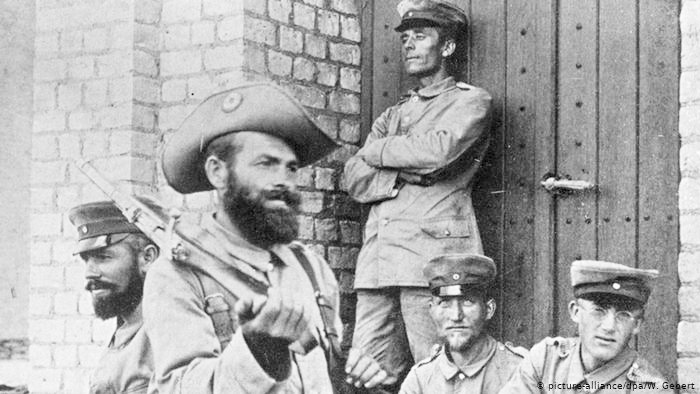
Germany Offers Namibia Projects Worth N$18,6b
Published on May 28, 2021 at 6:00 AM by Mc Noel Kasinja
THE German government is willing to pay Namibia 1,1 billion euros (N$18,6 billion) over 30 years in projects for the reconciliation and reconstruction of communities affected by the Nama-Herero genocide of 1904 to 1908 as a form of reparation.
Presidential press secretary Alfredo Hengari confirmed this yesterday, saying the proposal was brought to the table after the ninth round of negotiations was concluded in Germany on 15 May with a joint declaration by the special envoys of both countries.
However, this offer was yesterday rejected by the Ovaherero Traditional Authority (OTA) and the Nama Traditional Leaders Association (NTLA).
It is alleged that the N$18,6 billion is meant to assist Namibia on infrastructure, healthcare and job-training programmes – especially pertaining to the affected communities.
The Namibian and German governments began negotiations six years ago with the aim that Germany comes to terms with its colonial past.
Between 1904 and 1908, German troops killed tens of thousands of Herero and Nama people, but over the years the German government has rejected the concept of genocide, also in view of possible compensation.
Hengari said the Cabinet yesterday deliberated on the matter, and president Hage Geingob is expected to address the affected communities.
“The government takes a systematic approach to the genocide negotiations. The matter was in Cabinet today, 26 May, following which the president will provide feedback about the first phase of the process and will discuss further steps with the affected communities,” Hengari said.
Meanwhile, the OTA and NTLA said the so-called “compensation” to finance “social projects” is nothing but a cover-up for continued German funding of Namibian government projects under its fifth National Development Plan, the Harambee Prosperity Plan II, and Vision 2030.
Hengari denied this, saying it is “incorrect and false for anyone to claim that”, and that Geingob’s position on the matter has never changed.
“The position of the president has always been clear … admission by Germany that a genocide took place, following an apology to be extended, and then reparations/redress for the affected communities,” Hengari said.
Ovaherero chief Vekuii Rukoro yesterday claimed the government’s intentions are not pure.
“They are not chasing reparations. They are chasing it for their developmental projects,” he said.
Rukoro, who spoke on behalf of OTA and NTLA, which declined the offer saying N$18,6 billion does not suffice for two communities who suffered irreversible harm at the hands of Germans.
‘IN BED WITH THE DEVIL’
“That is not enough for the blood of our ancestors. We will fight to hell and back. We will get in bed with the devil if that will get us what we deserve,” he said.
Rukoro said Geingob does not have the interest of the affected communities at heart.
“They have no mandate to represent the Ovaherero and Nama people, and that is what they failed to take into consideration,” he said.
Rukoro questioned Germany’s intention to apologise, saying they are trying to avoid paying reparations, which is why they are redefining it as “reconstruction” and “reformation”.
“That’s an insult to our ancestors and our intelligence,” he stressed.
The NTLA chairperson, Johannes Isaack, said he was surprised by the announcement of a deal, adding they do not support the deal.
“We were excluded, and anything without us is against us . . . We have to keep fighting,” he said.
Both Rukoro and Isaacks maintained that Namibia’s special envoy on the genocide, Zed Ngavirue, and the government are sell-outs for accepting the offer.
Ngavirue said the negotiating team has been working with the affected communities closely for the past six years.
He yesterday said the damages suffered cannot be monetised, hence the negotiations on the table were focused on.
the reconstruction of the affected communities by considering their needs and priorities.
“We assessed the damage suffered and worked with what we thought was needed. We are well aware of the fact that the German government would not be able to restore and restitute our losses,” he said.
Ngavirue said Namibia has always negotiated for the reconstruction of societies and has presented the German government with information based on discussions with the affected communities.
“What the Germans did was to respond to what we put on the table. It was a political settlement and is not just based on pure reparations,” he said.
Rukoro said political parties have been reeled in to reject the offer and walk out of parliament during future discussions.
“When German president Frank-Walter Steinmeier comes to Namibia to render the apology we will embarrass him,” he said.



